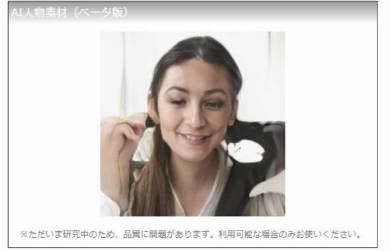Herbology Lesson
According to Webster, the word inorganic is described as: 1. Not organic; not endowed with, or subjected to, organization; devoid of an organized structure, or the structure of a living being; unorganized; as rocks, minerals and all nonliving chemical compounds and elements are inorganic. 2. Pertaining to or embracing substances or species, as inorganic chemistry; inorganic forces; the inorganic kingdom.
The word organic is described by the same authority as pertaining to an organ or its functions; consisting of organs or containing them; as the organic structure of the human body or of plants.
It will be seen plainly wherein the difference lies, but it is necessary to go a step farther in order to fully grasp the real difference. The end product of combustion, of organic matter particularly, is largely carbon dioxide, and both animal and human metabolism is considered today to be a slow process of oxidation. The human body always contains much more oxygen than any other element. The word oxygen is derived from the Greek meaning "to bring forth.”
The only breathable oxygen produced by nature is from the leaves or lungs of plants and given off to the atmosphere in abundance.
Carbon dioxide does not and cannot support the life of the human or animal cell, but it is absorbed into the organism of the plant, the carbon being used for structural purposes and the oxygen being breathed out.
The very breath of human life is, therefore, dependent upon the vegetable or herb kingdom. Holy Scripture says, “The fruit thereof is for meat and the leaves for the powerful escharotic poisons known. One dram will quickly prove fatal by destroying the organic structure of any tissue it touches, literally eating away tissues of the mouth,
healing of the nations,” and modern science verifies that fact.
We know well that the herb can and does assimilate inorganic mineral matter, and that through some mysterious and unknown alchemy convert this inert and lifeless matter into living organic material, which, when presented to the animal or human cell, is hungrily absorbed, sustaining and renewing its life process.
We also know that the life process of the human cell cannot be sustained by any element or compound obtained directly from the inorganic kingdom.
Even oxygen in the air we breathe is diluted with 79.07 percent nitrogen by volume, or 77 percent nitrogen by weight.
If pure oxygen is inhaled for more than a comparatively short length of time, it will destroy the tissues by burning them. If a mouse is placed into a large jar of oxygen, he will frisk about and be excessively active for 20 or 30 minutes, and then drop dead. But the oxygen from plants, used as food and medicine, does not so destroy.
Here we shall give one or two examples of the effect of organic and inorganic compounds or elements upon the human organism, in order to prove beyond doubt the destructive effect of the one and the beneficial effect of the other.
Oxalic acid does not occur free in nature, but is found in combination with sodium, potassium, calcium, iron, and manganese in the juices of many plants, such as rhubarb, sorrel, oak bark, cinchona, yellow dock, etc.
Oxalic acid is prepared artificially by oxidizing sugar and starch with nitric acid, and in this form is one of the most esophagus, stomach, duodenum, and finally perforating the peritoneum and approximately 30 minutes after swallowing and after great suffering, will result in
Copyright © 2002: American Holistic College of Nutrition
ハーブ学レッスン
ウェブスターによると、無機という言葉は次のように説明されています。組織に恵まれていない、または組織に服していない組織化された構造、または生物の構造がない;未組織;岩、鉱物、およびすべての非生物の化合物と元素は無機であるためです。 2.無機化学としての物質または種に関する、または包含する。無機的な力;無機の王国。
有機という言葉は、臓器またはその機能に関するものと同じ権威によって説明されています。臓器からなるか、それらを含む;人体または植物の有機構造として。
違いがどこにあるのかがはっきりとわかりますが、実際の違いを完全に把握するには、さらに一歩進む必要があります。特に有機物の燃焼の最終生成物は主に二酸化炭素であり、動物と人間の両方の代謝は今日、遅い酸化プロセスであると考えられています。人体は常に他のどの要素よりもはるかに多くの酸素を含んでいます。酸素という言葉は、ギリシャ語の「もたらす」という意味に由来しています。
自然によって生成される唯一の呼吸可能な酸素は、植物の葉または肺からのものであり、大気中に豊富に放出されます。
二酸化炭素は、人間または動物の細胞の生命を支えず、支えることもできませんが、植物の生物に吸収され、構造上の目的に使用され、酸素が排出されます。
したがって、人間の生命の息吹は、野菜やハーブの王国に依存しています。聖書は次のように述べています。「その果実は肉用であり、葉は知られている強力な毒用です。 1つのドラムは、触れる組織の有機構造を破壊し、文字通り口の組織を食いつぶすことで、致命的であることがすぐにわかります。
国家の癒し」と現代科学はその事実を検証します。
私たちは、ハーブが無機ミネラル物質を吸収し、吸収すること、そしていくつかの神秘的で未知の錬金術により、この不活性で生命のない物質を生きた有機物質に変換することをよく知っています。ライフプロセスを更新します。
また、無機細胞界から直接得られた元素や化合物では、ヒト細胞の生命過程を維持できないこともわかっています。
私たちが呼吸する空気中の酸素でさえ、体積で79.07パーセントの窒素、または重量で77パーセントの窒素で希釈されます。
純粋な酸素を比較的短い時間以上吸入すると、組織が燃焼して組織が破壊されます。マウスを酸素の大きな瓶に入れた場合、彼は20から30分間動き回って過度に活発になり、その後死んでしまいます。しかし、食物や薬として使用される植物からの酸素はそれほど破壊しません。
ここでは、一方の破壊的効果と他方の有益な効果を疑いなく証明するために、有機および無機化合物または要素が人間の生物に及ぼす効果の1つまたは2つの例を示します。
シュウ酸は自然界では遊離していませんが、ルバーブ、スイバ、オークの樹皮、キナ、黄色のドックなど、多くの植物のジュースに含まれるナトリウム、カリウム、カルシウム、鉄、マンガンと組み合わせて発見されます。
シュウ酸は、砂糖と澱粉を硝酸で酸化することにより人工的に調製され、この形態では最も食道、胃、十二指腸の1つであり、最終的に腹膜に穴をあけ、嚥下後約30分で大きな苦痛の結果、
Copyright©2002:アメリカンホリスティックカレッジオブ栄養
17
According to Webster, the word inorganic is described as: 1. Not organic; not endowed with, or subjected to, organization; devoid of an organized structure, or the structure of a living being; unorganized; as rocks, minerals and all nonliving chemical compounds and elements are inorganic. 2. Pertaining to or embracing substances or species, as inorganic chemistry; inorganic forces; the inorganic kingdom.
The word organic is described by the same authority as pertaining to an organ or its functions; consisting of organs or containing them; as the organic structure of the human body or of plants.
It will be seen plainly wherein the difference lies, but it is necessary to go a step farther in order to fully grasp the real difference. The end product of combustion, of organic matter particularly, is largely carbon dioxide, and both animal and human metabolism is considered today to be a slow process of oxidation. The human body always contains much more oxygen than any other element. The word oxygen is derived from the Greek meaning "to bring forth.”
The only breathable oxygen produced by nature is from the leaves or lungs of plants and given off to the atmosphere in abundance.
Carbon dioxide does not and cannot support the life of the human or animal cell, but it is absorbed into the organism of the plant, the carbon being used for structural purposes and the oxygen being breathed out.
The very breath of human life is, therefore, dependent upon the vegetable or herb kingdom. Holy Scripture says, “The fruit thereof is for meat and the leaves for the powerful escharotic poisons known. One dram will quickly prove fatal by destroying the organic structure of any tissue it touches, literally eating away tissues of the mouth,
healing of the nations,” and modern science verifies that fact.
We know well that the herb can and does assimilate inorganic mineral matter, and that through some mysterious and unknown alchemy convert this inert and lifeless matter into living organic material, which, when presented to the animal or human cell, is hungrily absorbed, sustaining and renewing its life process.
We also know that the life process of the human cell cannot be sustained by any element or compound obtained directly from the inorganic kingdom.
Even oxygen in the air we breathe is diluted with 79.07 percent nitrogen by volume, or 77 percent nitrogen by weight.
If pure oxygen is inhaled for more than a comparatively short length of time, it will destroy the tissues by burning them. If a mouse is placed into a large jar of oxygen, he will frisk about and be excessively active for 20 or 30 minutes, and then drop dead. But the oxygen from plants, used as food and medicine, does not so destroy.
Here we shall give one or two examples of the effect of organic and inorganic compounds or elements upon the human organism, in order to prove beyond doubt the destructive effect of the one and the beneficial effect of the other.
Oxalic acid does not occur free in nature, but is found in combination with sodium, potassium, calcium, iron, and manganese in the juices of many plants, such as rhubarb, sorrel, oak bark, cinchona, yellow dock, etc.
Oxalic acid is prepared artificially by oxidizing sugar and starch with nitric acid, and in this form is one of the most esophagus, stomach, duodenum, and finally perforating the peritoneum and approximately 30 minutes after swallowing and after great suffering, will result in
Copyright © 2002: American Holistic College of Nutrition
ハーブ学レッスン
ウェブスターによると、無機という言葉は次のように説明されています。組織に恵まれていない、または組織に服していない組織化された構造、または生物の構造がない;未組織;岩、鉱物、およびすべての非生物の化合物と元素は無機であるためです。 2.無機化学としての物質または種に関する、または包含する。無機的な力;無機の王国。
有機という言葉は、臓器またはその機能に関するものと同じ権威によって説明されています。臓器からなるか、それらを含む;人体または植物の有機構造として。
違いがどこにあるのかがはっきりとわかりますが、実際の違いを完全に把握するには、さらに一歩進む必要があります。特に有機物の燃焼の最終生成物は主に二酸化炭素であり、動物と人間の両方の代謝は今日、遅い酸化プロセスであると考えられています。人体は常に他のどの要素よりもはるかに多くの酸素を含んでいます。酸素という言葉は、ギリシャ語の「もたらす」という意味に由来しています。
自然によって生成される唯一の呼吸可能な酸素は、植物の葉または肺からのものであり、大気中に豊富に放出されます。
二酸化炭素は、人間または動物の細胞の生命を支えず、支えることもできませんが、植物の生物に吸収され、構造上の目的に使用され、酸素が排出されます。
したがって、人間の生命の息吹は、野菜やハーブの王国に依存しています。聖書は次のように述べています。「その果実は肉用であり、葉は知られている強力な毒用です。 1つのドラムは、触れる組織の有機構造を破壊し、文字通り口の組織を食いつぶすことで、致命的であることがすぐにわかります。
国家の癒し」と現代科学はその事実を検証します。
私たちは、ハーブが無機ミネラル物質を吸収し、吸収すること、そしていくつかの神秘的で未知の錬金術により、この不活性で生命のない物質を生きた有機物質に変換することをよく知っています。ライフプロセスを更新します。
また、無機細胞界から直接得られた元素や化合物では、ヒト細胞の生命過程を維持できないこともわかっています。
私たちが呼吸する空気中の酸素でさえ、体積で79.07パーセントの窒素、または重量で77パーセントの窒素で希釈されます。
純粋な酸素を比較的短い時間以上吸入すると、組織が燃焼して組織が破壊されます。マウスを酸素の大きな瓶に入れた場合、彼は20から30分間動き回って過度に活発になり、その後死んでしまいます。しかし、食物や薬として使用される植物からの酸素はそれほど破壊しません。
ここでは、一方の破壊的効果と他方の有益な効果を疑いなく証明するために、有機および無機化合物または要素が人間の生物に及ぼす効果の1つまたは2つの例を示します。
シュウ酸は自然界では遊離していませんが、ルバーブ、スイバ、オークの樹皮、キナ、黄色のドックなど、多くの植物のジュースに含まれるナトリウム、カリウム、カルシウム、鉄、マンガンと組み合わせて発見されます。
シュウ酸は、砂糖と澱粉を硝酸で酸化することにより人工的に調製され、この形態では最も食道、胃、十二指腸の1つであり、最終的に腹膜に穴をあけ、嚥下後約30分で大きな苦痛の結果、
Copyright©2002:アメリカンホリスティックカレッジオブ栄養
17














 </figure>
</figure> </figure>
</figure> </figure>
</figure>




